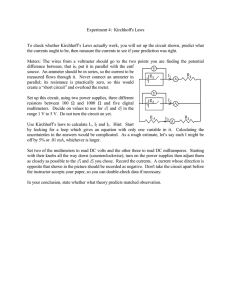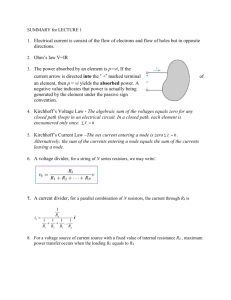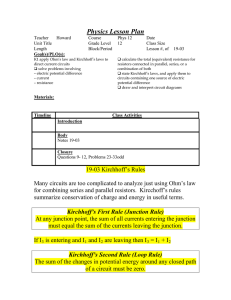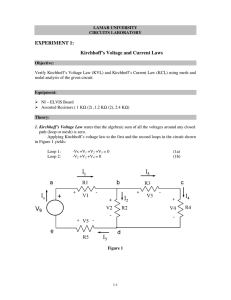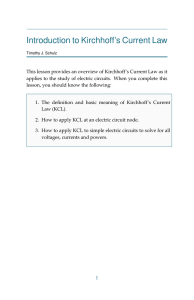LabFA13-2– Kirchhoff`s Laws
advertisement
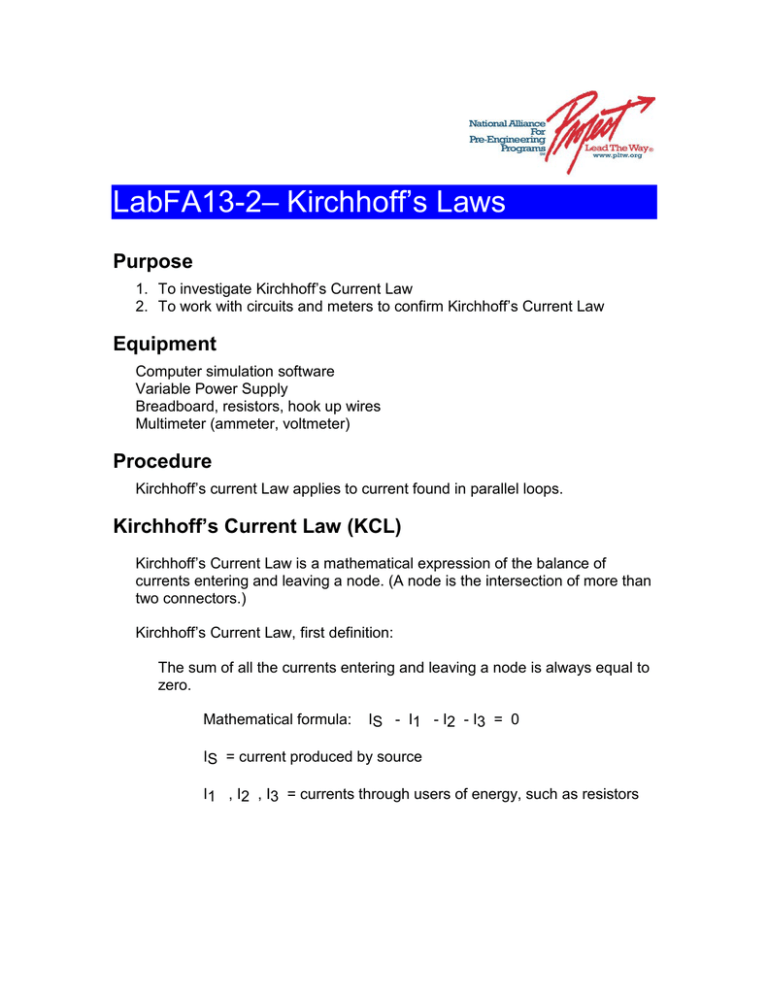
LabFA13-2– Kirchhoff’s Laws Purpose 1. To investigate Kirchhoff’s Current Law 2. To work with circuits and meters to confirm Kirchhoff’s Current Law Equipment Computer simulation software Variable Power Supply Breadboard, resistors, hook up wires Multimeter (ammeter, voltmeter) Procedure Kirchhoff’s current Law applies to current found in parallel loops. Kirchhoff’s Current Law (KCL) Kirchhoff’s Current Law is a mathematical expression of the balance of currents entering and leaving a node. (A node is the intersection of more than two connectors.) Kirchhoff’s Current Law, first definition: The sum of all the currents entering and leaving a node is always equal to zero. Mathematical formula: IS - I1 - I2 - I3 = 0 IS = current produced by source I1 , I2 , I3 = currents through users of energy, such as resistors Circuit Example for Kirchhoff’s Current Law (KCL), first definition Specific Example: Kirchhoff’s Current Law (KCL), Second definition: In a node, the sum of the currents entering the node is equal to the sum of the currents leaving the node. . • Construct the following circuit using the computer simulation software: Note: USE the value R3 = 1k. + Vs 10V R1 470 R2 470 R3 940 Place meters into the circuit to read: IR1, IR2, IR3, VR1, VR2, VR3, VS Print a copy of the circuit and paste it below. • Breadboard the circuit above. Demonstrate Kirchhoff’s Current Law to the teacher. Demonstrate the circuit to your teacher and get signature:________________
